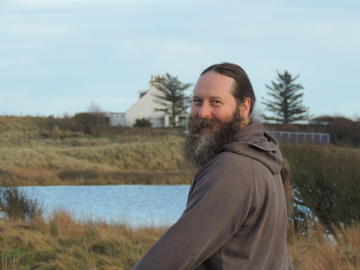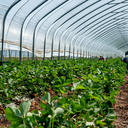Fixing the food system is central to tackling the world's climate, biodiversity, water and human health crisis

Fixing the food system is central to tackling the world's climate, biodiversity, water and human health crisis
Professor Pete Smith
Date: Wednesday 21 May, 16:00
Location: Oxford Martin School, seminar room 1 and online
Join us for a talk by Professor Pete Smith from the University of Aberdeen.
Title: Fixing the food system is central to tackling the world's climate, biodiversity, water and human health crisis
Abstract: The world is facing multiple challenges across the nexus of climate, biodiversity, water, food systems, and human health and well-being. We are facing an ever-worsening climate emergency with the global mean temperature in 2024 surpassing the 1.5°C (above pre-industrial levels) goal of the Paris Agreement, with uncertain and unprecedented extreme events threatening lives, infrastructure, and ecosystems the world over. At the same time, we face a global water crisis; over 700 million people, or 1 in 10 people, lack access to clean water. We are facing a global food system crisis; 783 million people on the planet are facing chronic hunger, with 7 million deaths per year from diets low in whole grains, fruits, nuts and seeds and with many more people consuming unhealthy diets. We are in the midst of a nature emergency; one million species are threatened with extinction, and the global rate of decline in species has accelerated to an unprecedented rate in human history. We are facing a range of global health and well-being challenges including antimicrobial resistance, increases in impacts of climate change on a range of health issues, a rise in non-communicable diseases such as cardiovascular conditions, diabetes and cancer, and inadequate prevention and preparedness for infectious diseases and pandemics.
The food system is responsible for a third of human greenhouse gas emissions, is the primary driver of biodiversity loss, is responsible for 70% of freshwater withdrawals and poor diets contribute health risks for 3-4 billion people on the planet. Attempts to remedy any of these interlinked crises must involve the food system.
In this talk I will outline some findings from the recent IPBES Nexus Assessment, emphasising interventions relevant to the food system, which show that a number of solutions can co-deliver to solving these interlinked crises, if implemented in a fair and just way, and if “nexus” thinking is embedded in their design from the outset.
Pete Smith is Professor of Soils and Global Change at the Institute of Biological and Environmental Sciences at the University of Aberdeen, Scotland, Science Director of the Scottish Climate Change Centre of Expertise (ClimateXChange) and Distinguished Visiting Professor at Tsinghua University in Beijing. His interests include climate change mitigation, soils, agriculture, food systems, ecosystem services modelling and nature-based solutions.
He has been a convening lead author on many reports of the Intergovernmental Panel on Climate Change (IPCC) and the Intergovernmental Science-Policy Platform on Biodiversity and Ecosystems Services (IPBES).
He is a Fellow of the Royal Society of Biology, a Fellow of the Institute of Soil Scientists, a Fellow of the Royal Society of Edinburgh, a Foreign Fellow of the Indian National Science Academy, a Fellow of the European Science Academy, and a Fellow of the Royal Society (London).






